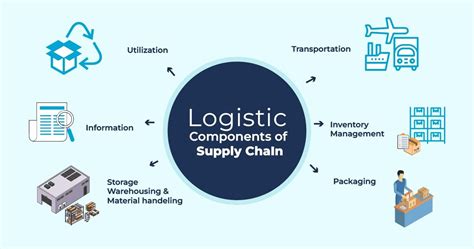Logistics, the backbone of any modern enterprise, plays a pivotal role in ensuring the seamless flow of goods and services from suppliers to customers. At the heart of this complex ecosystem lies the Supply Systems Logistician, an indispensable professional who designs, implements, and manages supply chains that optimize efficiency, reduce costs, and enhance customer satisfaction.

Understanding the Role of a Supply Systems Logistician
A Supply Systems Logistician is responsible for overseeing the planning, execution, and control of all aspects of the supply chain, including:
- Procurement: Identifying and sourcing materials, products, and services from suppliers
- Inbound Logistics: Receiving and storing goods from suppliers
- Inventory Management: Maintaining optimal levels of inventory to meet demand while minimizing costs
- Outbound Logistics: Shipping and delivering goods to customers
- Reverse Logistics: Managing the return and disposition of products, including warranty claims and recalls
- Transportation: Selecting and coordinating transportation methods to ensure timely and cost-effective delivery
- Warehousing: Managing warehouse operations to optimize storage, picking, and shipping
- Supply Chain Technology: Implementing and leveraging technology solutions to enhance supply chain efficiency and visibility
The Impact of Supply Systems Logistics
According to a McKinsey & Company study, companies that excel in supply chain management achieve 20% higher profit margins, 35% lower inventory costs, and 40% faster order fulfillment. The importance of supply chains has only escalated in recent years, with global supply chains becoming increasingly complex and interconnected.
Qualities of a Successful Supply Systems Logistician
Effective Supply Systems Logisticians possess a unique blend of technical expertise, analytical skills, and strategic thinking, including:
- Strong understanding of supply chain principles and practices
- Excellent communication and interpersonal skills
- Proficiency in data analysis and forecasting
- Ability to think creatively and solve complex problems
- Excellent project management and organizational skills
- Knowledge of industry best practices and emerging technologies
Applications of Supply Systems Logistics
The principles of supply systems logistics can be applied across a diverse range of industries, including:
- Manufacturing
- Retail
- Healthcare
- Transportation
- Defense
- Agriculture
Innovative Applications
- Cross-Docking: Eliminating storage by unloading inbound goods directly into outbound trailers
- Vendor-Managed Inventory (VMI): Suppliers manage inventory at the customer’s site, ensuring optimal levels without overstocking
- Radio Frequency Identification (RFID): Tracking inventory in real-time using RFID tags
- Blockchain: Enhancing supply chain transparency and traceability
Tips and Tricks for Supply Systems Logisticians
- Embrace Data Analytics: Use data to identify pain points, optimize processes, and make informed decisions.
- Collaborate with Cross-functional Teams: Ensure effective communication and coordination with procurement, manufacturing, sales, and customer service.
- Stay Updated on Industry Trends: Attend conferences, read industry publications, and engage in professional development to stay abreast of best practices and emerging technologies.
- Invest in Technology: Implement technology solutions to automate processes, improve visibility, and enhance efficiency.
- Monitor and Measure Performance: Establish key performance indicators (KPIs) to track progress and identify areas for improvement.
Common Mistakes to Avoid
- Lack of Planning: Failing to develop a comprehensive supply chain plan can lead to inefficiencies and bottlenecks.
- Poor Inventory Management: Overstocking and understocking can increase costs and disrupt operations.
- Ignoring Customer Needs: Not understanding customer requirements can result in poor service levels and lost business.
- Overreliance on Technology: While technology is essential, it should not replace sound supply chain principles and human expertise.
- Neglecting Supplier Relationships: Building strong relationships with suppliers can improve pricing, lead times, and overall supply chain performance.
Frequently Asked Questions (FAQs)
1. What is the primary role of a Supply Systems Logistician?
To design, implement, and manage supply chains that optimize efficiency, reduce costs, and enhance customer satisfaction.
2. What industries typically employ Supply Systems Logisticians?
A wide range of industries, including manufacturing, retail, healthcare, transportation, defense, and agriculture.
3. What are the key skills required to be a successful Supply Systems Logistician?
Technical expertise, analytical skills, strategic thinking, communication skills, and proficiency in data analysis and forecasting.
4. How can Supply Systems Logisticians leverage technology to enhance supply chain performance?
By implementing technology solutions for automation, inventory management, data analytics, and supply chain visibility.
5. What are some trends that are shaping the future of supply systems logistics?
Sustainability, digitalization, blockchain, and collaborative supply chains.
6. What are some common mistakes that Supply Systems Logisticians should avoid?
Lack of planning, poor inventory management, ignoring customer needs, overreliance on technology, and neglecting supplier relationships.
7. What is the future outlook for Supply Systems Logisticians?
The demand for Supply Systems Logisticians is expected to grow rapidly as businesses recognize the importance of optimizing supply chains to stay competitive.
8. Where can I find additional resources on supply systems logistics?
– Council of Supply Chain Management Professionals (CSCMP)
– Association for Supply Chain Management (ASCM)
– Institute for Supply Management (ISM)
– American Production and Inventory Control Society (APICS)
